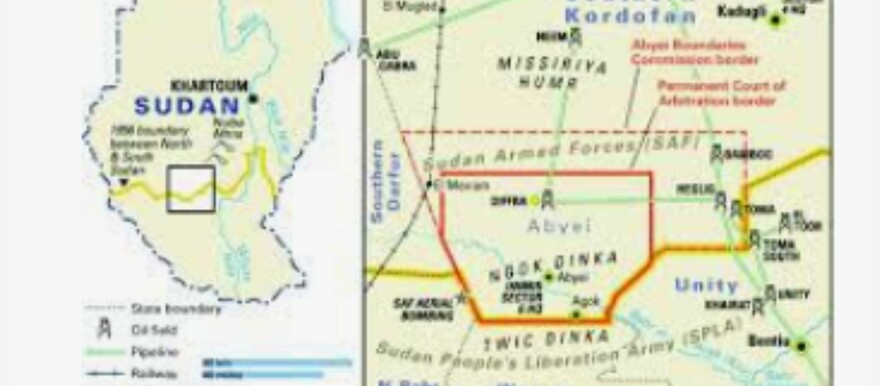South Sudan and Sudan must respect the demilitarization of Abyei and evacuate their forces, UN Security Council members urged on Monday, as senior officials reported on the latest political, security, and humanitarian developments, including the impact of ongoing fighting in Sudan on agreement on the final status of the disputed area.
Jean-Pierre Lacroix, Under-Secretary-General for Peacekeeping Operations, briefing the Council on the United Nations Interim Security Force for Abyei (UNISFA), whose mandate renewal will be considered by the Council next week, said the outbreak of armed conflict in Sudan in April interrupted encouraging signs of dialogue between Sudan and South Sudan earlier in 2023 and effectively put on hold the political process with regard to the final status of Abyei and border issues.
“The United Nations, in close coordination with the African Union, remains ready to support a resumption of dialogue and is monitoring the situation for the conditions that might allow for this,” he said.
The presence of approximately 200 South Sudan People’s Defence Forces (SSPDF) and South Sudan National Police Service personnel in southern Abyei, and an estimated 60 Sudanese oil police in northern Abyei, contradict UNISFA’s mandate and Abyei’s demilitarized and weapons-free status, resulting in restrictions on the Mission’s freedom of movement, he pointed out, calling once again on relevant authorities for their withdrawal.
The Mission has worked to facilitate humanitarian assistance to an estimated 220,000 vulnerable people in the central and southern parts of Abyei, including those displaced in intercommunal clashes and others fleeing the fighting in Sudan, he continued, reporting that, in Abyei, the Sudan crisis has resulted in an influx of displaced people, with the UN’s humanitarian partners recording over 9,000 people at Amiet Market who have sought refuge from the fighting.
“With the conflict in Sudan, the conditions are not conducive for talks on the final status of Abyei,” said Hanna Serwaa Tetteh, Special Envoy of the Secretary-General for the Horn of Africa.
Nevertheless, representatives of Abyei communities expressed the need to maintain the Abyei issue on the agenda of the UN and African Union.
Pointing to the tense security and dire humanitarian situations in South Kordofan and Blue Nile states, exacerbated by the conflict between the Sudanese Armed Forces and Rapid Support Forces, she urged the international community to pursue a comprehensive political strategy dealing with the conflicts in South Kordofan and Blue Nile and the final status of Abyei.
In the debate that followed, Council members voiced concern about stalled political progress toward Abyei’s permanent settlement and the impact of the conflict in Sudan to that end. Speakers also pointed to the presence of security forces from both Sudan and South Sudan in Abyei in violation of its demilitarized and weapons-free status and called on both sides to withdraw their troops and return to dialogue.
The representative of the United States was among the speakers who voiced concern over the continued presence in Abyei of South Sudanese and Sudanese armed groups, threatening its demilitarized status. He called on all armed groups to depart the region and called on the Governments of Sudan and South Sudan to evacuate their forces.
Emphasizing the importance of UNISFA peacekeepers’ safety, he urged the parties to the conflict to provide safe passage and freedom of movement to all personnel — a call also made by other delegations.




